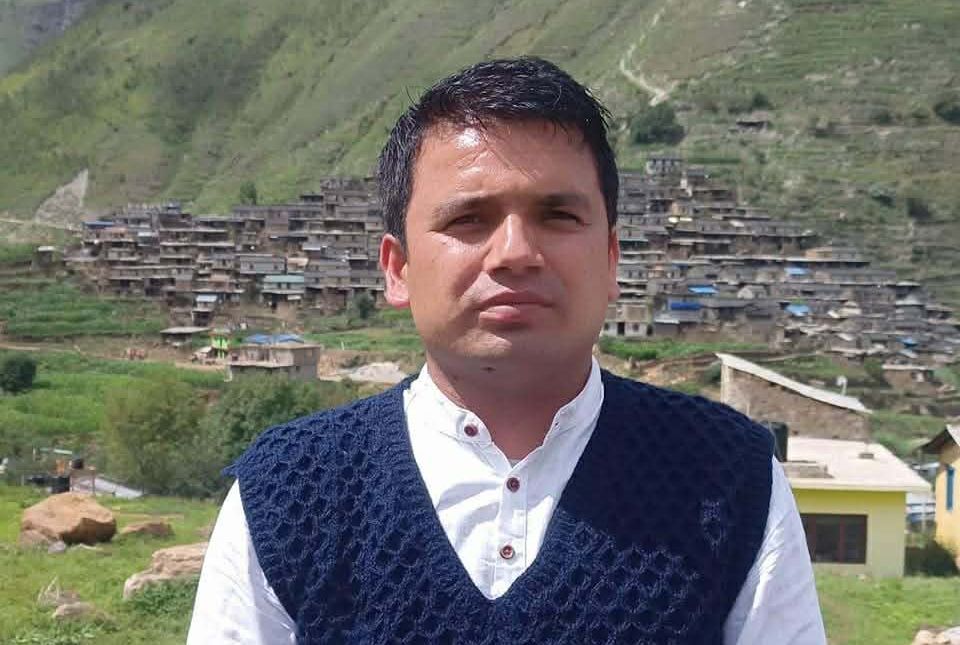
File
The No Objection Certificate (NOC) branch under Nepal’s Ministry of Education, Science and Technology has come under intense scrutiny following revelations of widespread bribery, where students are being extorted up to Rs 100,000 to obtain the clearance required for foreign studies.
A striking case has emerged involving a student from Kavrepalanchok who applied for an NOC on October 16, 2024 (Ashoj 30, 2081 BS) to pursue an MSc in Public Health in the UK. Her application was rejected the same day on grounds that she lacked an eligibility certificate from the Medical Education Commission—an essential document for medical-related studies abroad.
However, internal documents accessed by Onlinekhabar reveal that NOC staff began bargaining for bribes, initially demanding Rs 30,000. After her second attempt on November 27, 2024 (Mangsir 11), her application was again rejected, and this time, she was asked to pay Rs 60,000. Eventually, on her third try on December 5, 2024 (Mangsir 19), her application was approved without the required eligibility certificate—after paying a bribe of Rs 50,000.
The documents indicate that the final approval was processed by computer operator Shailendra Yadav and branch officer Ganesh Puri. Soon after receiving the NOC, the student flew to the UK.
Her family confirmed the ordeal, saying, “All three times the staff demanded bribes. In the end, when the university asked her to complete the process, we were forced to pay what was asked.”
Fake documents, complicit staff and consultants

Sources say NOC staff, in collusion with education consultancies, have been uploading fake eligibility certificates into the system to issue NOCs illegally. Despite rules requiring proper documentation of the institution, course, credit hours, and legal status of the university, students have reportedly obtained NOCs with forged or incomplete paperwork.
“This has become a racket,” one source noted. “Staff and consultancy agents create fake offer letters within minutes and manipulate the system to grant NOCs.”
The risk for students is severe. If they return to Nepal, their foreign-earned degrees may not be recognised due to their failure to follow legal procedures. Still, many pay large sums to obtain the certificate quickly, especially when under pressure from foreign universities.
“The going rate ranges from Rs 30,000 to over Rs 100,000, depending on the country,” a source said. “NOCs for the US, Australia, Canada, and European nations are the most expensive. Since students are in a rush to fly out, they are willing to pay whatever it takes.”
Former Tribhuvan University Vice-Chancellor Dr Kedar Bhakta Mathema condemned the practice as a gross abuse of authority, “This is outrageous. The law clearly states that no NOC should be issued without the Medical Education Commission’s permission. Granting NOCs illegally is akin to trafficking.”
Staff ignore transfers, maintain illegal hold on office
Despite being officially transferred, some employees have refused to leave their posts at the NOC branch in Sanothimi. One such official, technical assistant Khadga Bahadur Hamal, was transferred in August 2024 but has continued to operate from the branch, allegedly under verbal orders from senior ministry officials.
Some employees are even known to misuse colleagues’ passwords to carry out illegal operations. Complaints filed with various government bodies have yielded little action, with internal investigations reportedly manipulated by staff altering computer data during inspections.
Violations of protocol and lack of oversight
According to regulations, students applying for a second NOC must return the original and submit certificates proving their study or refund statements from banks if they never enrolled. However, staff have reportedly ignored these requirements in exchange for bribes.
Even students without clearly specified course start dates or medium of instruction in their offer letters have been granted NOCs after paying under-the-table fees. Some have even secured NOCs by submitting fake language proficiency certificates.
Though the NOC process is now online, insiders say staff frequently bypass system checks. Once documents are uploaded online, students are prompted to pay Rs 2,000 if everything appears valid—but physical verification is often bypassed, and rules are flouted.
Over 100,000 NOCs issued annually, billions leaving the country
The NOC branch, housed separately in Sanothimi for easier student access, receives over 100,000 applications annually. In the fiscal year 2080/81 alone, 112,968 NOCs were issued. According to Nepal Rastra Bank, over Rs 125 billion left the country last year in higher education-related foreign currency outflows.
As of Fagun (mid-February) in the current fiscal year, 92,648 NOCs have already been issued, with Rs 112.44 billion in educational remittances leaving Nepal.
Spokesperson for the Ministry of Education, Shiva Kumar Sapkota, claimed that the ministry is actively monitoring the situation: “The Higher Education Division is conducting regular supervision. Many concerns have been raised in national forums and conferences. The ministry is committed to reforming the NOC branch.”
Despite repeated complaints, no substantial reforms have yet materialised, and the NOC branch remains plagued by deep-rooted corruption and abuse of power—leaving students vulnerable at one of the most critical points in their academic careers.






















